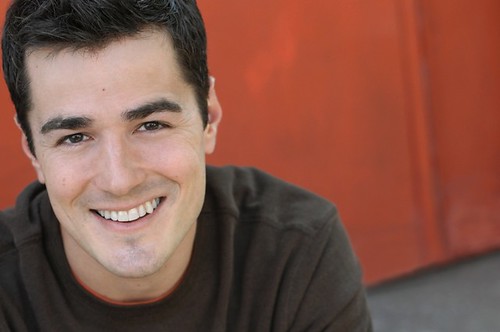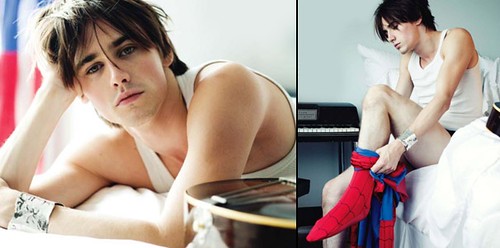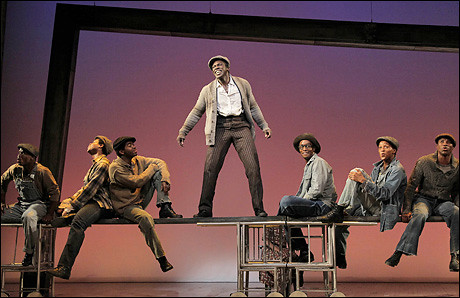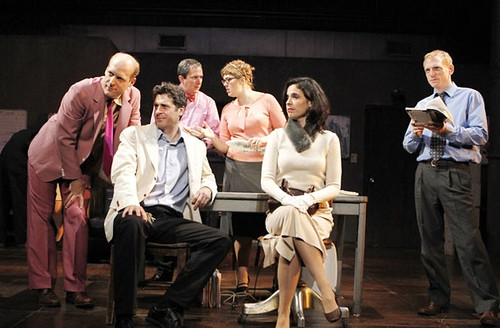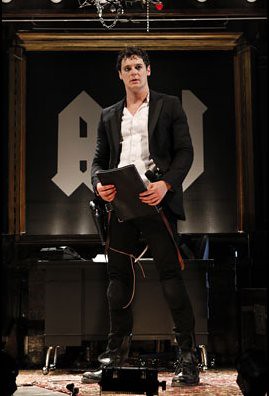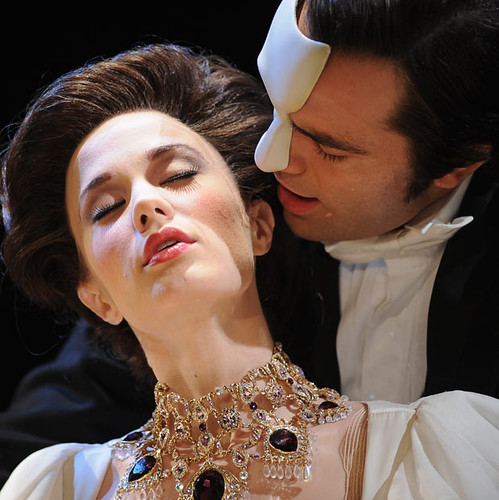If Broadway’s testing your patience and your pocketbook these days—it’s doing both to ours—you might want to head downtown to the Merchant’s House Museum in the next week or so to see The Turn of the Screw. (Check out our more detailed post later today.) Adapted from the Henry James novella of the same name, it’s a ghost story performed in a ghostly setting, and it’s very cool. Plus, we love actor Vince Gatton (The Temperamentals, I Am My Own Wife), who’s playing multiple characters in the piece. He was kind of enough to take time out of his busy performance schedule to answer some of our extremely nosey questions about the show, the ghosts onstage and off, and the stuffed lion he had as a kid. Enjoy!
.
The Show:
You play multiple characters in the show, from a 10-year-old boy to an aging female housekeeper. Who’s your fav?:
Miles, the ten-year-old, without a doubt. He’s both the prize being fought over, and one of the combatants. People find him brilliant, creepy, seductive, and repellent. I also find him terribly, terribly sad.
You’re telling a ghost story in one of New York City’s most haunted places. Have you had any any firsthand supernatural encounters in the Merchant’s House?
My co-star, Christina LaFortune, claims the ghost of Gertrude Tredwell [the house’s last inhabitant, who died there in 1933] followed us down the stairs at the first performance, but I can’t verify that.
With only 30 seats in the parlor, you’re in very close contact with your audience. Got any good crowd stories?
So far, everyone at the Merchant’s House has been very well-behaved. But when we did the show in Florida, one woman decided not only to unwrap candy the whole time, she unpacked her whole purse, spread out over a couple of seats, kicked off her shoes, and picked at her toenails the whole time. Charming.
For over a century people have debated several interpretations of the plot. Do you take sides?
There have been many adaptations of this story, and to some degree every adaptation takes a side — if only in how they choose to show the ghosts. This one doesn’t show them at all, leaving it more open to interpretation. One reason I think Jeffrey Hatcher’s version is so brilliant is that it demands that the audience use its imagination. The mystery becomes even more baffling when what the Governess thinks she “saw” comes into question. The ambiguity is unsettling, and I wouldn’t want to ruin the effect.
Still, as we’ve peeled the layers of this script, I know I have taken a side. There is a clear roadmap in there of what exactly has happened, but it’s not something I think many people will fully understand on the first viewing. So, yes.
.
The Pointless-Yet-Entertaining Personal Stuff:
What’s your hometown and did you like it there?
Louisville, Kentucky. And yes, it’s a great place to be from.
Did you have a favorite stuffed animal when you were a kid?
Twooley. A lion. I still have it, in fact.
Words you use too often:
Really, embittered, corn niblets
Words you don’t use often enough:
Prestidigitation, aviatrix, Jesus take the wheel
Last book you read:
Winner of the National Book Award by Jincy Willett
Favorite mid-/late-nineties pop song:
Chumbawamba, “Tubthumping”
.
The Randoms:
Per IMDB, you voiced a character in something called Knight Hunters: Weiß Kreuz. Explain, please.
I play the boyfriend of the heroine in this anime series episode. I’m killed in the first scene when a flaming van full of assassins plunges off an overpass and crushes me and my moped. Yup, you read that right.
You’ve talked about your career in terms of two phases so far—your Naked Period and your Gender Bending Period—after seeing The Temperamentals and now The Turn of the Screw, we’re wondering, could this be your Sharp Suit Period? And do you have a favorite phase?
Well, I’m actually in my multiple-characters-in-one-play phase, doing Fully Committed, I Am My Own Wife, and now this. IAMOW sort of bridges the multi-character and gender-bending phases; now I guess TOTS bridges with The Temperamentals for this new sharp-suit phase. Hard to play favorites: there have been roles I loved deeply in all of them. This multi-character phase is high-risk/ high-reward, though, and I’ll say I’m really enjoying it.
Last but not least: Your resume lists “useless trivia” as one of your Special Skills. Astound us with your favorite factoid.
“Autosomal dominant compulsive helio-ophthalmic outbursts of sneezing” is the syndrome you have if you sneeze in bright sunlight.

